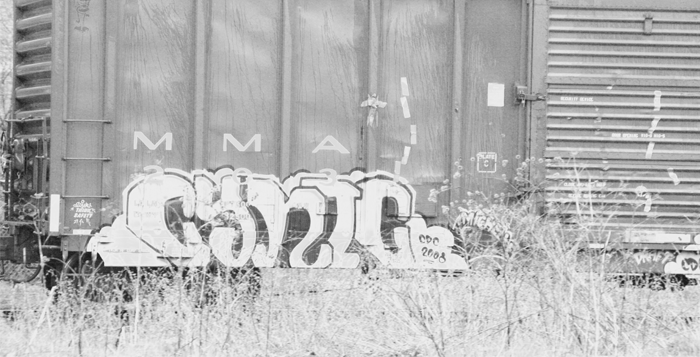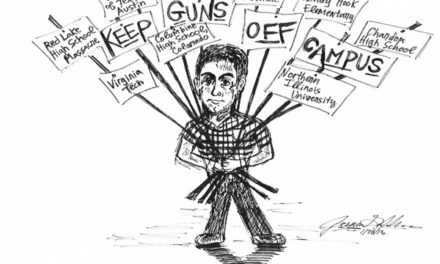
Dexter, Rorschach, Gregory House, Batman. Anti-heroes are more than a discernible character role – they are trendy. Who wants to be Luke Skywalker when you could be Han Solo? Popular culture has long since come into an age of bad-boy mania.
This craze extends far beyond favoring characters into popularized life outlooks. The dark and gritty has taken its pedestal above the light and clean in the land of young adult culture. Skepticism is born as a by-product of experiencing the real world; disillusionment is a common, if not entirely unconditional, part of coming into adulthood.
But there is a rise in new ideas about modern life that revolve around cynicism, as if turning any accepted ideal on its head reveals the ugly truth of concepts that are normally positively viewed. Though these new viewpoints are certainly creative, in the end, the automatic acceptance of cynical standpoints is often unhelpful and, in the long run, even harmful.
Just take a look at the famed contrasting super-duo: Batman and Superman. Batman is usually seen as broody and melodramatic to a fault, and yet he is also seen as more realistic and down to earth than his comparative counterpart, Superman. In recent representations of Superman, he is often portrayed as not only distant but unable to connect with most of humanity (see: the dumbfounding Man of Murder – oh wait, I mean Man of Steel).
And in one of the most popular modern evaluations that does view Superman as understanding the side is that of the devil’s advocate. As Bill from “Kill Bill: Vol. 2” would have you believe, “[Superman’s] alter ego is Clark Kent … That’s the costume Superman wears to blend in with us. Clark Kent is how Superman views us … He’s weak … he’s unsure of himself … he’s a coward. Clark Kent is Superman’s critique on the whole human race.”
Superman’s alter ego is weak because humans are weak: proof that the iconic Superman is cynical about the human race!
Murdering countless people isn’t enough. Bill has to kill our childhood idols too. And the best part is people actually buy into this perspective because it’s edgy – it’s a way to disown a perceived childish notion of truth and justice. This apparent need to sully childhood idols always drives me over the edge.
Never mind the resounding amount of literature that says the opposite, never mind that “he often seems to have greater faith in the human race than we have in ourselves. This … is what makes Superman “Superman” (Superman and Philosophy: What Would the Man of Steel Do, ed. Mark White). People will go through enormous lengths to come up with a stretched example of his cynicism and disregard the enormous amounts of work about his belief in human goodness.
Do not be mistaken; this isn’t just about throwing away a fictional American idol. It’s about taking in all the positivity out there and still going out of our way to point out that one bad thing even when there’s nothing to back it up.
Cynicism is more than distrust. Being cynical does not end at believing that people are selfish and untrustworthy but also leads to being one of those selfish people. Often when people are cynical, it is this belief that everyone else is inherently selfish that is used to excuse their own selfish actions and intentions. Of course our friend Bill thinks Superman views humanity as weak because it is this outlook of “weak humanity” that excuses him from the moral consequences of his actions.
If you believe that everyone around you is selfish and greedy, why be different?
If it’s a dog-eat-dog world, it’s best you go out and eat another dog first. Seeing the entirety of humanity as selfish sells us short, leaves no room for positive growth and remains a continuous excuse to act on self-interest at the cost of others. And if you’re someone who’s consistently cynical but you think you don’t act like “everyone else,” you probably do, and you are not a special snowflake that gets to be human but not part of humanity. To put it colloquially: stop saying you hate people, because you are a person, too!
I’m tired of seeing cynical views and points being hailed as deep. Is the cynical flawed character really more realistic than the trusting one because he can “see” the truth of humanity?
I’m going to go out on a limb here and propose that people want to see the heroes that are on their own level of self-interest so there is less guilt in participating in our individualistic consumer society. Attaining the Batman attitude is far easier than reaching for the “impossible” Superman.
This in no way means we should never distrust the status quo and never criticize our environments. There is a great difference between being critical and cynical. Knowing the difference, it is time to reevaluate the automatic applause we give ourselves and others for innovative but cynical viewpoints.
It isn’t hard to be cynical in a world where tragic news sells – but remaining optimistic? Giving people the benefit of the doubt?
That’s hard.
–By Erin Degler
The Emory Wheel was founded in 1919 and is currently the only independent, student-run newspaper of Emory University. The Wheel publishes weekly on Wednesdays during the academic year, except during University holidays and scheduled publication intermissions.
The Wheel is financially and editorially independent from the University. All of its content is generated by the Wheel’s more than 100 student staff members and contributing writers, and its printing costs are covered by profits from self-generated advertising sales.





Blah blah blah,
That’s right!